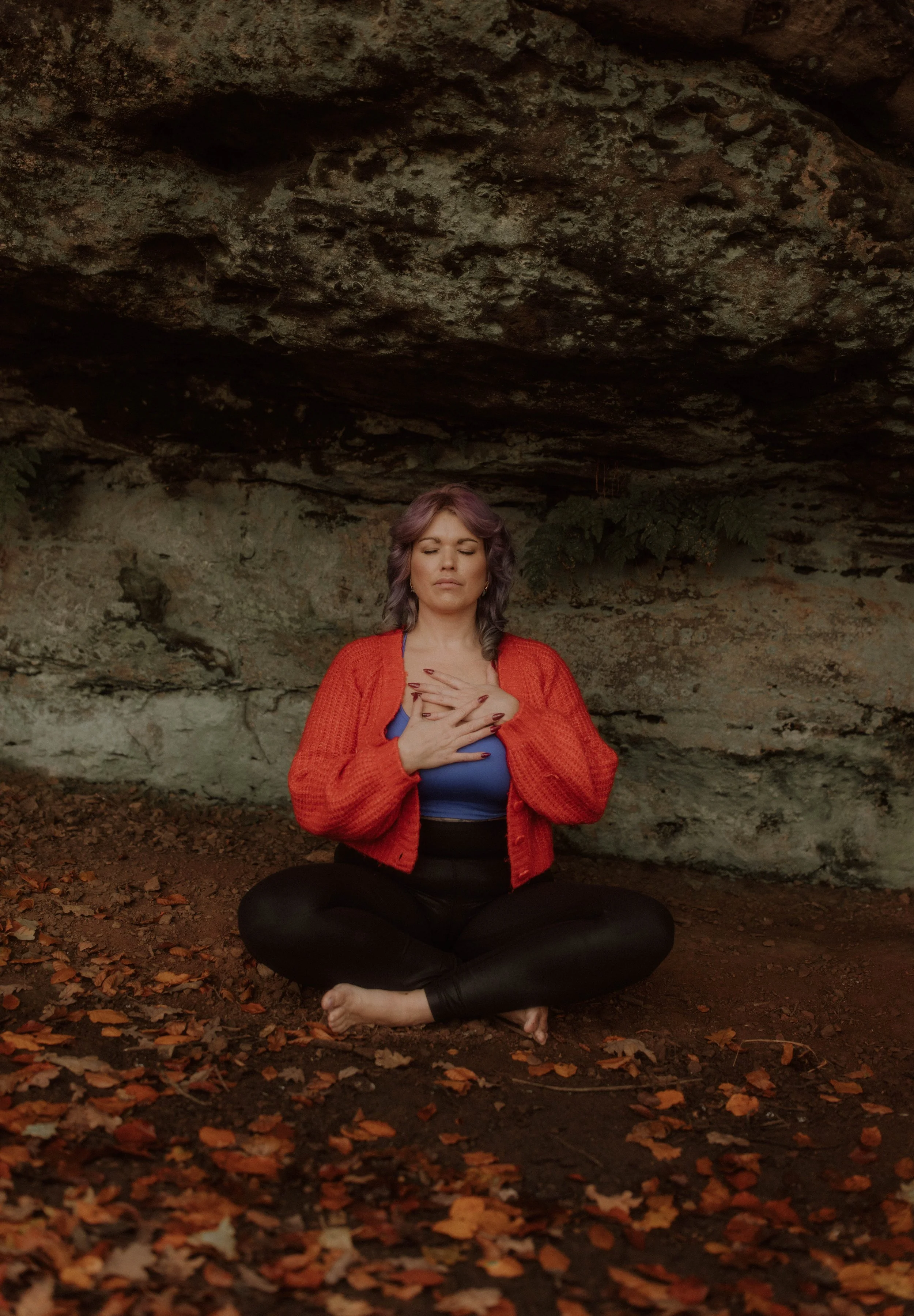
Yoga Therapy
Yoga therapy appointments take place either from my home studio in Chorlton which is fully equipped with all props or online over Zoom.
Appointments in your home can be arranged at an additional cost.
I offer a FREE initial zoom call lasting 15-30 minutes so we can discuss your interest in yoga therapy and to get a feel for if I am the right yoga therapist for you.
Each full session is 60 minutes long, the first appointment will include a full assessment of your needs/interests.
What is Yoga Therapy?
-

What is Yoga Therapy?
Yoga therapy is the professional application of the principles and practices of yoga to promote health and well-being within a therapeutic relationship.
The process includes personalised assessment, goal setting, lifestyle management, and yoga practices for individuals or small groups.
-
Goals of Yoga Therapy
The goals of yoga therapy include eliminating, reducing, or managing symptoms that cause suffering; improving function; helping to prevent the occurrence or reoccurrence of underlying causes of illness; and moving toward improved health and well- being.
Yoga therapy also helps clients/students change their relationship to and identification with their condition.
-

Why me? Lucy P
I am one of only a handful of fully qualified Yoga Therapists here in the UK with over 600hours of accredited training.
To find out more about me head to the ABOUT LUCY section of the site
-

Yoga Science
Yoga is a scientific system of self-investigation, self-transformation, and self-realization that originated in India. The teachings of yoga are rooted in the Vedas and grounded in classical texts and a rich oral tradition.
Yoga therapy is informed by its sister science, Ayurveda. As part of a living tradition, yoga therapy continues to evolve and adapt to the cultural context in which it is practiced, and today, it is also informed by contemporary health sciences. Its efficacy is supported by an increasing body of research evidence, which contributes to the growing understanding and acceptance of its value as a therapeutic discipline.
-

Yoga Tradition
The yoga tradition views humans as a multidimensional system that includes all aspects of body; breath; and mind, intellect, and emotions and their mutual interaction. Yoga is founded on the basic principle that intelligent practice can positively influence the direction of change within these human dimensions, which are distinct from an individual’s unchanging nature or spirit.
This tradition recognizes that the human being’s essential nature is unchanging awareness that exists in relationship to and identification with the changing phenomena of the empirical world .
-

Types of Yoga
The practices of yoga traditionally include, but are not limited to, asana, pranayama, meditation, mantra, chanting, mudra, ritual, and a disciplined lifestyle.
Yoga therapy is the appropriate application of these teachings and practices in a therapeutic context in order to support a consistent yoga practice that will increase self-awareness and engage the client/student’s energy in the direction of desired goals.
The practice of yoga therapy requires specialised training and skill development to support the relationship between the client/student and therapist and to effect positive change for the individual.


